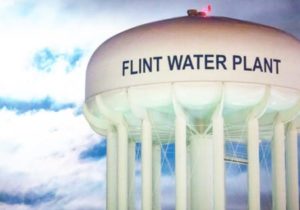
In September 2016, the Senate reached a deal on an extensive waterways bill providing $220 million in federal funding to repair Flint’s drinking water system, according to Michigan Sen. Debbie Stabenow’s website. The city’s water supply was slowly poisoned with lead from aging water pipes for months after Flint officials switched the water supply from Lake Huron to the highly polluted Flint River.
Democrat and Republican lawmakers are now working to decide how to allocate the water-crisis funding, leaving Congress little time to determine how the aid will be factored into a short-term spending bill known as the Water Resources Development Act 95-3.
The legislation was expected to go through the House of Representatives for approval but is back in the Senate as Democrats and Republicans actively work to reach a consensus on a two-part bill that would hopefully pass both houses and benefit Flint by the year’s end, a press secretary from Sen. Stabenow’s office told Atlanta Black Star.
“We will continue working to reach a final agreement and will hold Republican leaders accountable to their promise to pass assistance by the end of the year,” Sen. Stabenow said in a statement.
The proposed legislation would provide $50 million for health care for children sickened with lead poisoning as a result of the crisis and $20 million to clear Flint’s previous water loans, the senator’s website states. Moreover, the bill would give $20 million to initiate a $1-billion fund for low-interest loans to finance water infrastructure improvements.
In addition to the aid for Flint, the Water Resources Development Act is also expected to provide another $40 million for special programs dedicated to helping communities reduce lead in drinking water systems and $100 million to authorize lead testing at schools and child care facilities.
According to The Hill, the House approved its own version of the water bill, which allocated $170 million for water system clean-up in Flint. The Senate bill, however, appropriated a lump sum of $220 million to aid communities nationwide faced with drinking-water crises. Additionally, the legislation provided measures for drought relief in California.
“This is an important moment for California, and the timing of this deal is critical,” House Majority leader Kevin McCarthy said in a statement. “We cannot afford to miss capturing water from storms during this wet season. [This deal] signals that there is a path to getting more done to restore California’s greatness.”
According to MLive, the Senate’s last-minute attempt to insert language addressing the California drought into the Water Resources Development Act had nonprofit environmental group Natural Resources Defense Council worried that the new provision would jeopardize aid for Flint. U.S. Sen. Barbara Boxer, a member of the Environment and Public Works Committee, even called the added California drought provision “a last-minute poison pill.”
“This is a devastating maneuver,” Boxer said. “This last-minute backroom deal is so wrong, it is shocking.”
Other opponents of the WRDA’s California drought provision, like Rep. Dan Kildee (D-Flint), argued that the people of Flint have waited far too long for clean drinking water and for Congress to act on their behalf.
“Democrats and Republicans have already made a commitment to help the people of Flint by passing legislation in both the House and Senate,” Kildee said. “Lawmakers now must finish those promises and work to deliver real aid to families before the end of the year.”


